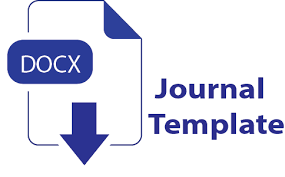West and the Metanarrative of Terrorism
A Genealogical Analysis and the Absurdity of the U.S. Terrorism Narrative in the Middle East
DOI:
https://doi.org/10.58223/al-irfan.v7i2.278Keywords:
West, Terrorism, Middle EastAbstract
This research will examine the Western world's metanarrative regarding the issue of terrorism and its impact on the Eastern world, especially the Middle East region. Terrorism is a complex issue and often becomes absurd when used as a political narrative by the ruling elites of the Western world. The West often enters the arena of war in the Middle East and carries out proxy wars against other opposing powers. The West, especially the US, often blurs the facts about who the perpetrators and victims of terrorism are. This research uses qualitative research methods to describe the phenomenon and discourse of terrorism developing in the Middle East. This research uses Pierre Boudieu's theory of genetic structuralism as an analytical tool. From this research, it was found that there was injustice in the West, especially the US, in using the narrative of terrorism. The US also uses violent methods to carry out counter-terrorism, which only gives rise to new terrorists emerging
References
Abdo, G. (2000). No God but God: Egypt and the Triumph of Islam. Oxford University Press.
Abdo, G. (2004). Islamism in North Africa II: Egypt’s Opportunity. ICG.
Bell, J. B. (2006). Trends on Terror: The Analysis of Political Violence. World Politics, 29(03), 476–488. https://doi.org/10.2307/2010007
Berner, B. K. (2007). The World According to Al Qaeda. Peacock Books.
Booth, K., & Dunne, T. (2012). Terror in Our Time. Routledge.
Borradori, G. (2005). Filsafat dalam Masa Teror, Dialog dengan Jurgen Habermas dan Jacques Derrida (A. Taryadi, Trans.). Penerbit buku Kompas.
Bourdieu, P. (1987). What Makes a Social Class? On The Theoretical and Practical Existence Of Groups. Journal of Sociology, 32, 1–17.
Byman, D. (2007). US Counter–terrorism Options: A Taxonomy. Survival, 49(3), 121–150. https://doi.org/10.1080/00396330701564711
Campbell, B. (2015). Terrorism and Genocide. Sociology of Crime, Law and Deviance, 20, 47–65. http://www.emeraldinsight.com/doi/10.1108/S1521-613620150000020003
Campbell, D. (1998). Writing Scurity. Manchester University Press.
Carol K., W. (2006). In The Name of Terrorism: Presidents on Political Violence in the Post-World War II Era. State University of New York Press.
Chomsky, N. (1991a). Menguak Tabir Terorisme Internasional (H. Basyaib, Trans.). Penerbit Mizan.
Chomsky, N. (1991b). Menguak Tabir Terorisme Internasional (H. Basyaib, Trans.). Penerbit Mizan.
Creswell, R. (2008, December 26). Oh the humanity. The National.
Devji, F. (2009). The Terrorist as Humanitarian. Berghahn Journals, 53(1), 173–192. https://doi.org/10.3167/sa.2009.530111
Devji, F. (2014). Politics after Al-Qaeda. Philosophy and Social Criticism, 40(4–5), 431–438. https://doi.org/10.1177/0191453714525391
Fairclough, N. (2001). Language and Power. Pearson Education.
Hendropriyono, A. M. (2009). Terorisme: Fundamentalisme Kristen, Yahudi, Islam. PT Kompas Media Nusantara.
Huda, S. (2014). Terorisme Kontemporer Dunia Islam. Teosofi: Jurnal Tasawuf Dan Pemikiran Islam, 4(2), 429–450.
Jenkins, B. M. (1974). International Terrorism: A New Kind of War-fare. Rand Corporation, Santa Monica.
Jenkins, B. M. (1999). “Internasional Terrorism” in The Use of Force (R. Art & K. N. Waltz, Eds.; 5th ed.). Rowman & Littlefield, Lanham.
Jenkins, B. M. (2001). Terrorism and Beyond: A 21st Century Perspective. Studies in Conflict and Terrorism, 24(5), 321–327. https://doi.org/10.1080/105761001750434196
Jenkins, B. M. (2006a). Irish Natinalism And the British State: From Repeal to Revolutionary Nationalism. McGill-Queen’s Uiniversity Press.
Jenkins, B. M. (2006b). The New Age of Terrorism. In The McGraw-Hill Homeland Security Handbook: The Definitive Guide for Law Enforcement, EMT, and all other Security Professionals. https://doi.org/10.1016/j.biopsycho.2003.11.001
Johnson, P. (2008). Heroes: From Alexander the Great and Julius Caesar to Churchill and de Gaulle (P.S.).
Kaczmarek, M., Lazarou, E., Guevara, M., & Fogel, B. (2018). US counter-terrorism since 9 / 11 Trends under the Trump administration. European Parliamentary Research Service.
Mas’odi, (2022). White Supremacy, Kekerasan Wacana, dan Ketidakadilan: Analisis Politik Standar Ganda Dunia Barat Dalam Konflik di Palestina dan Ukraina. AL-Irfan: Journal of Arabic Literature and Islamic Studies 5(2):177-194. DOI:10.36835/alirfan.v5i2.5892
Prasetyo, E. (2002). Islam Kiri: Melawan Kapitalisme Modal dari Wacana Menuju Gerakan. Pustaka Pelajar.
Primoratz, I. (2004). State terrorism and counter-terrorism. In Terrorism: The Philosophical Issues. https://doi.org/10.1057/9780230204546
Ritzer, G. (2012). Toeri Sosiologi: Dari Sosiologi Klasik Sampai Perkembangan Terakhir Postmodern (S. Pasaribu, Rh. WIdada, & A. Adinugraha, Trans.). Pustaka Pelajar.
Sihbudi, R. (2007). Menyandera Timur Tengah. Penerbit Mizan.
Tsui, C. K. (2014). Tracing the Discursive Origins of the War on Terror : President Clinton and the Construction of New Terrorism in the Post-Cold War Era (Issue April). University of Otago.
Tsui, C. K. (2015). Framing the threat of catastrophic terrorism: Genealogy, discourse and President Clinton’s counterterrorism approach. International Politics, 52(1), 66–88. https://doi.org/10.1057/ip.2014.36
Whittaker, D. (2003). The Terrorism Reader.
Wilkinson, P. (2012). Is Terrorism Still a Useful Analytical Term or Should It Be Abandoned? Routledge.
Winkler, Carol. (2007). Parallels in Preemptive War Rhetoric: Reagan on Libya; Bush 43 on Iraq. Rhetoric & Public Affairs, 10(2), 303–334. https://doi.org/10.1353/rap.2007.0042
Downloads
Published
How to Cite
Issue
Section
License
Copyright (c) 2024 Mas'odi Mas'odi

This work is licensed under a Creative Commons Attribution 4.0 International License.
Lisensi :
Al-Irfan: Journal of Arabic Literature and Islamic Studies is published under conditions Creative Commons Attribution 4.0 International License / CC BY 4.0 This license permits anyone to copy and redistribute this material in any form or format, modify, modify, and make derivative works of this material for any purpose, including commercial purposes, so long as they credit the author for the original work.











